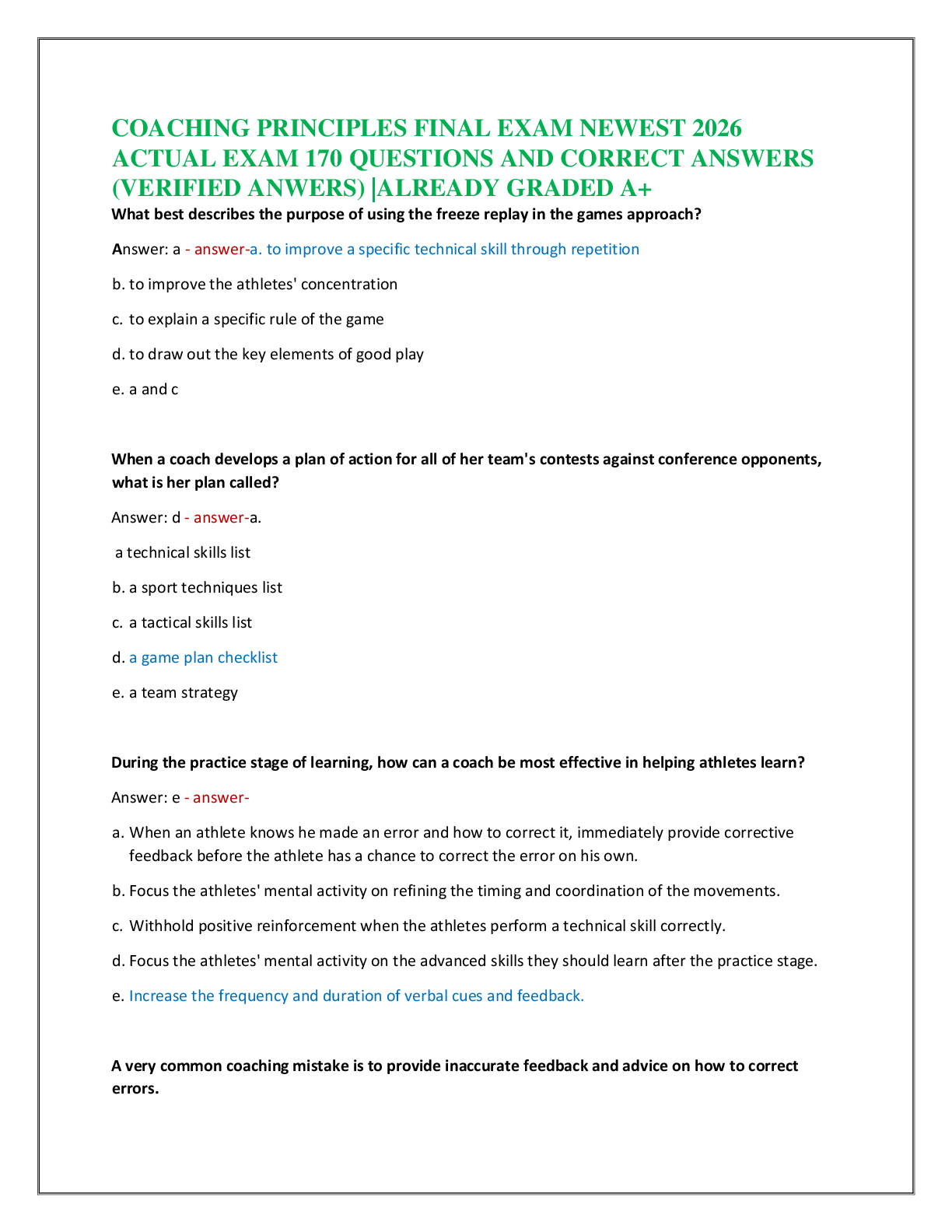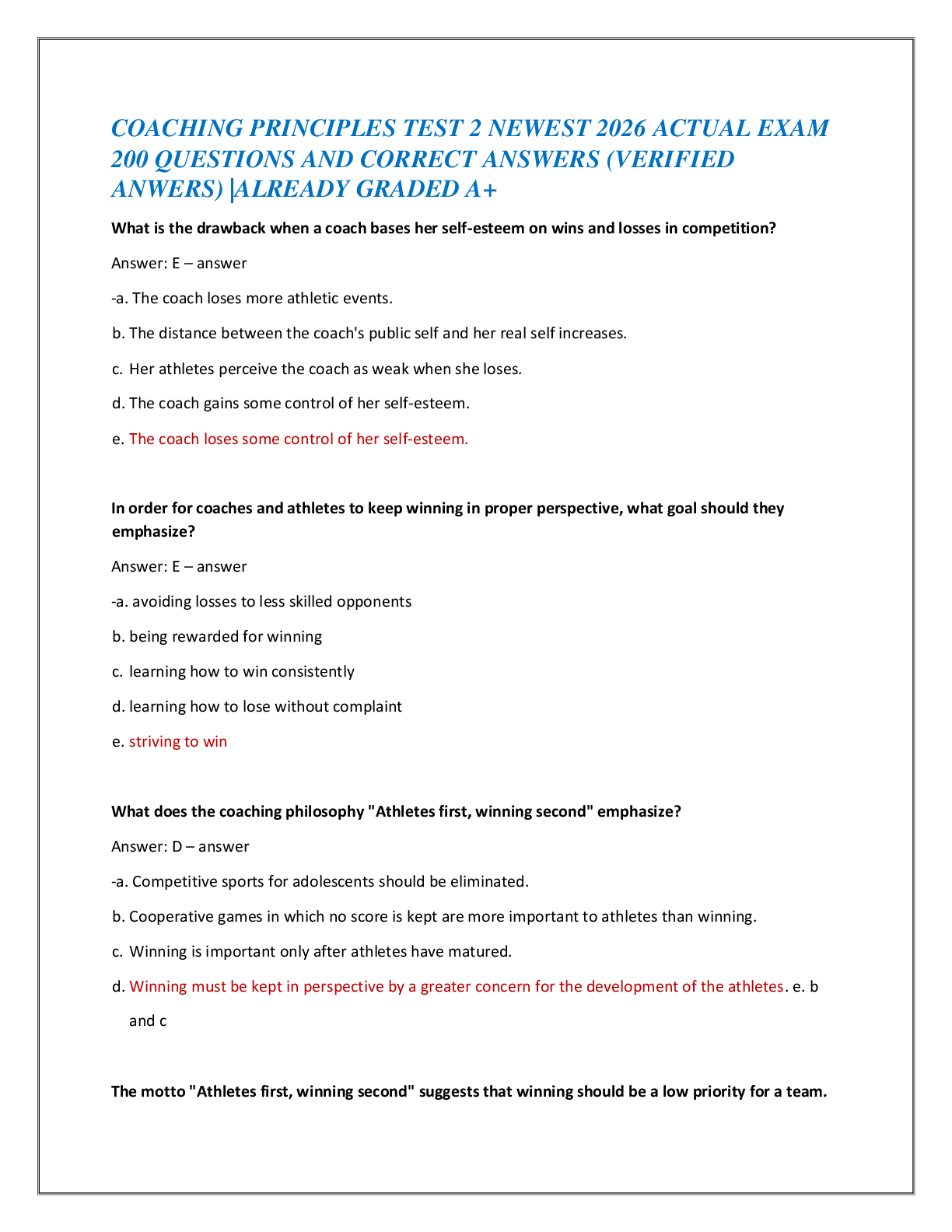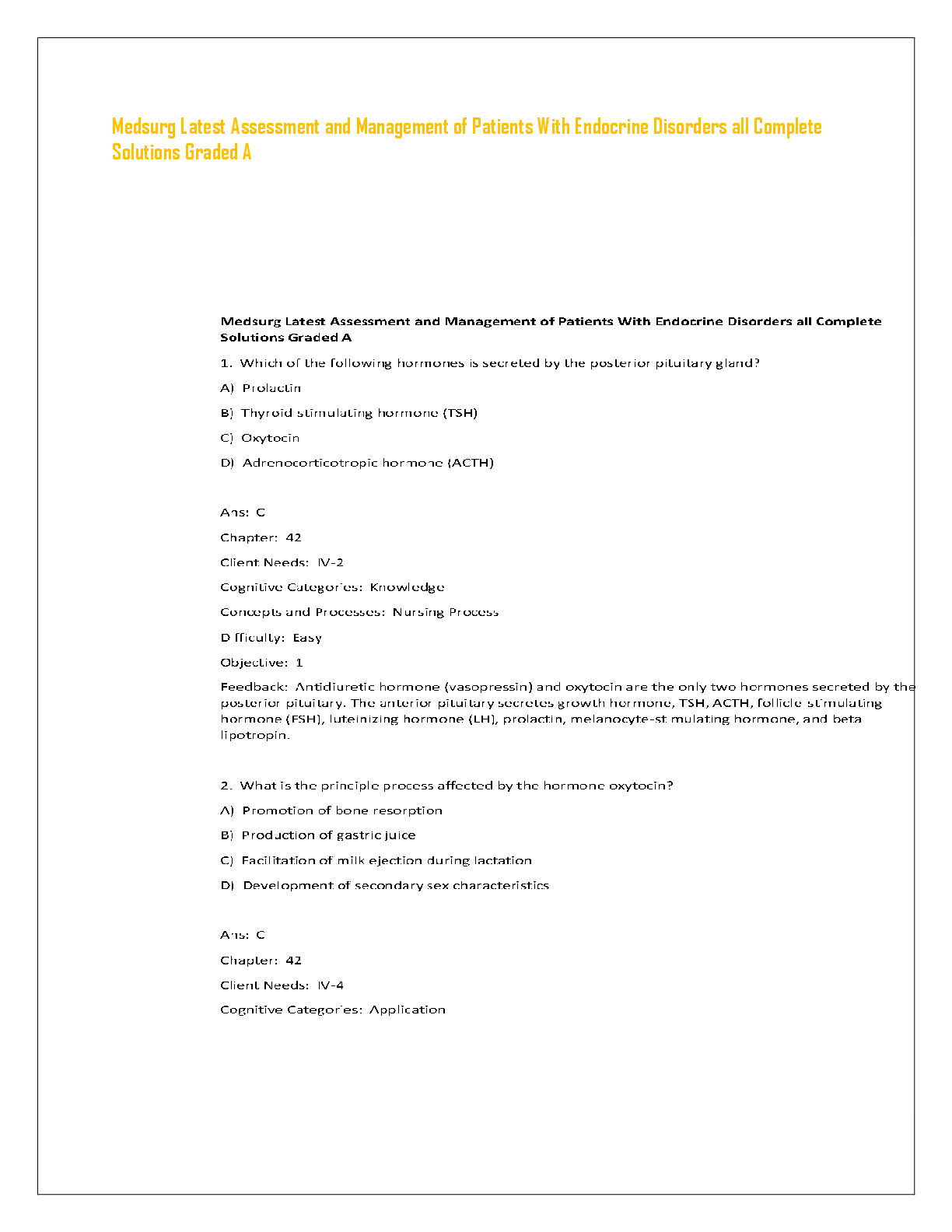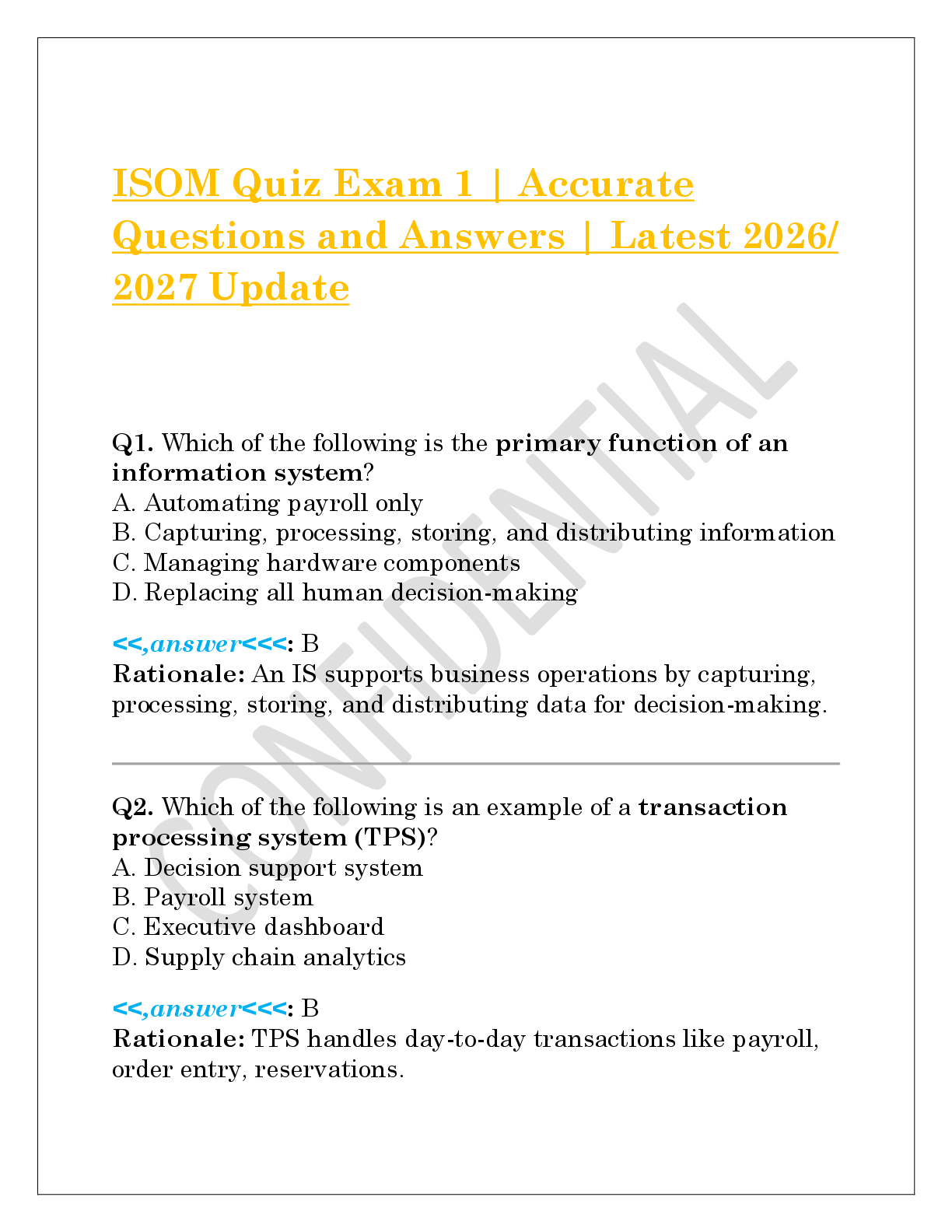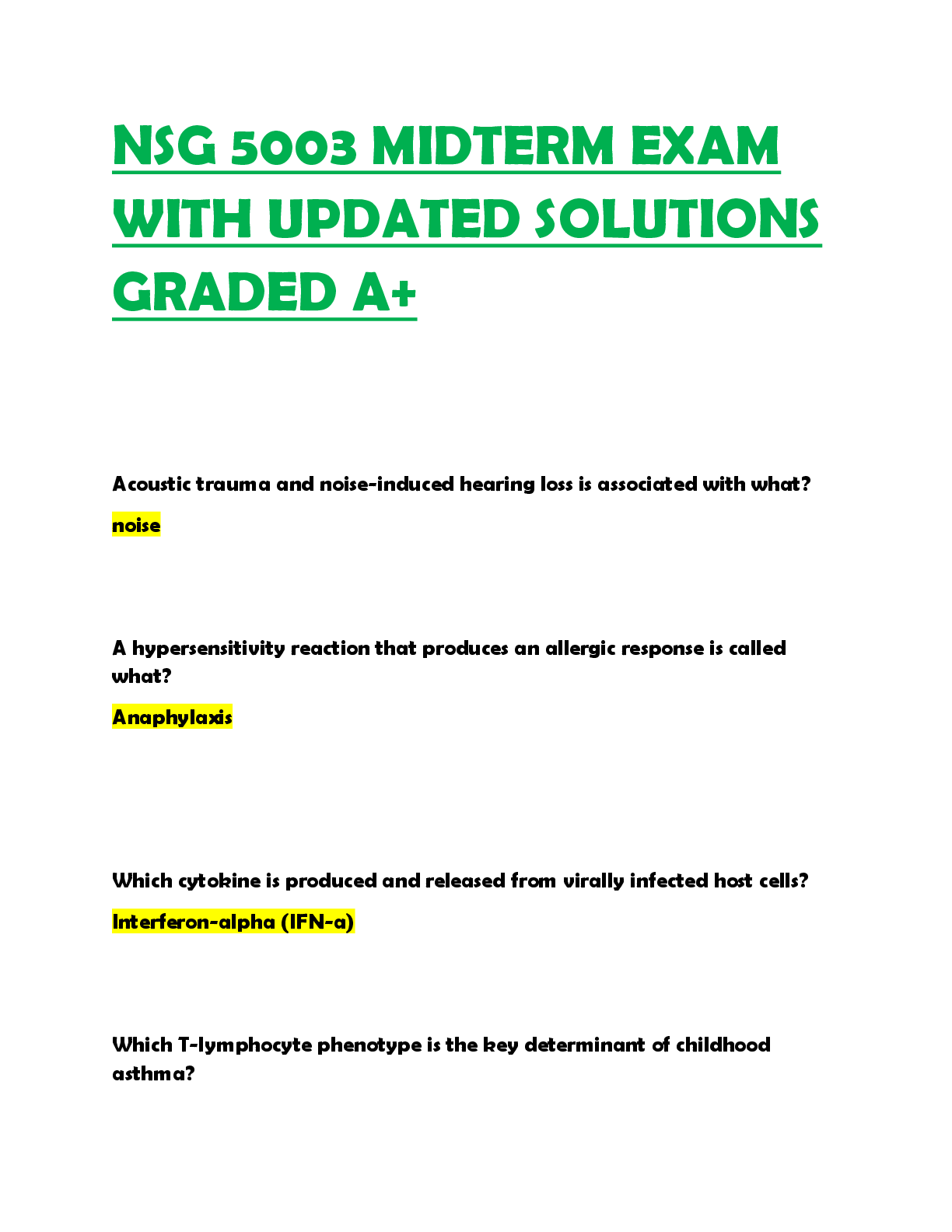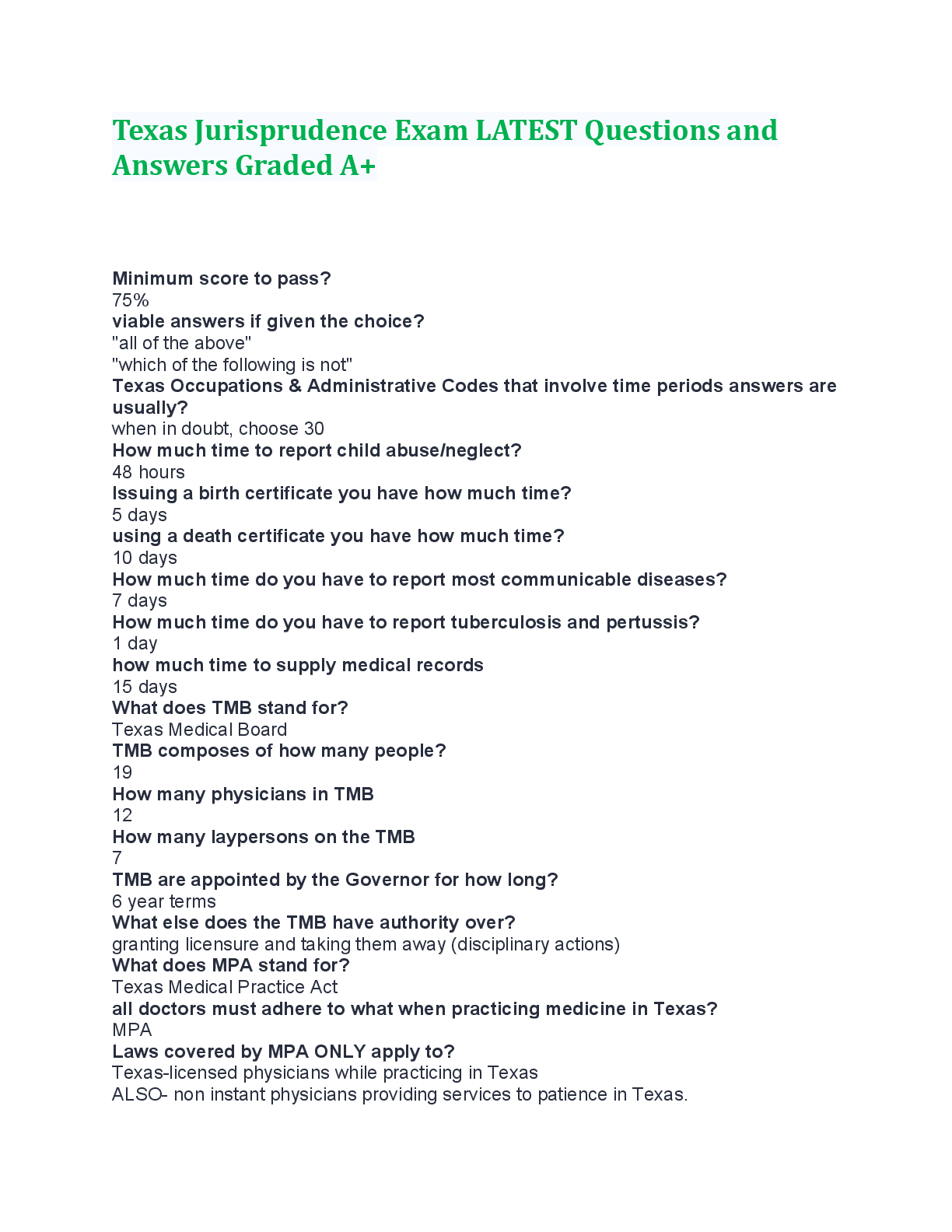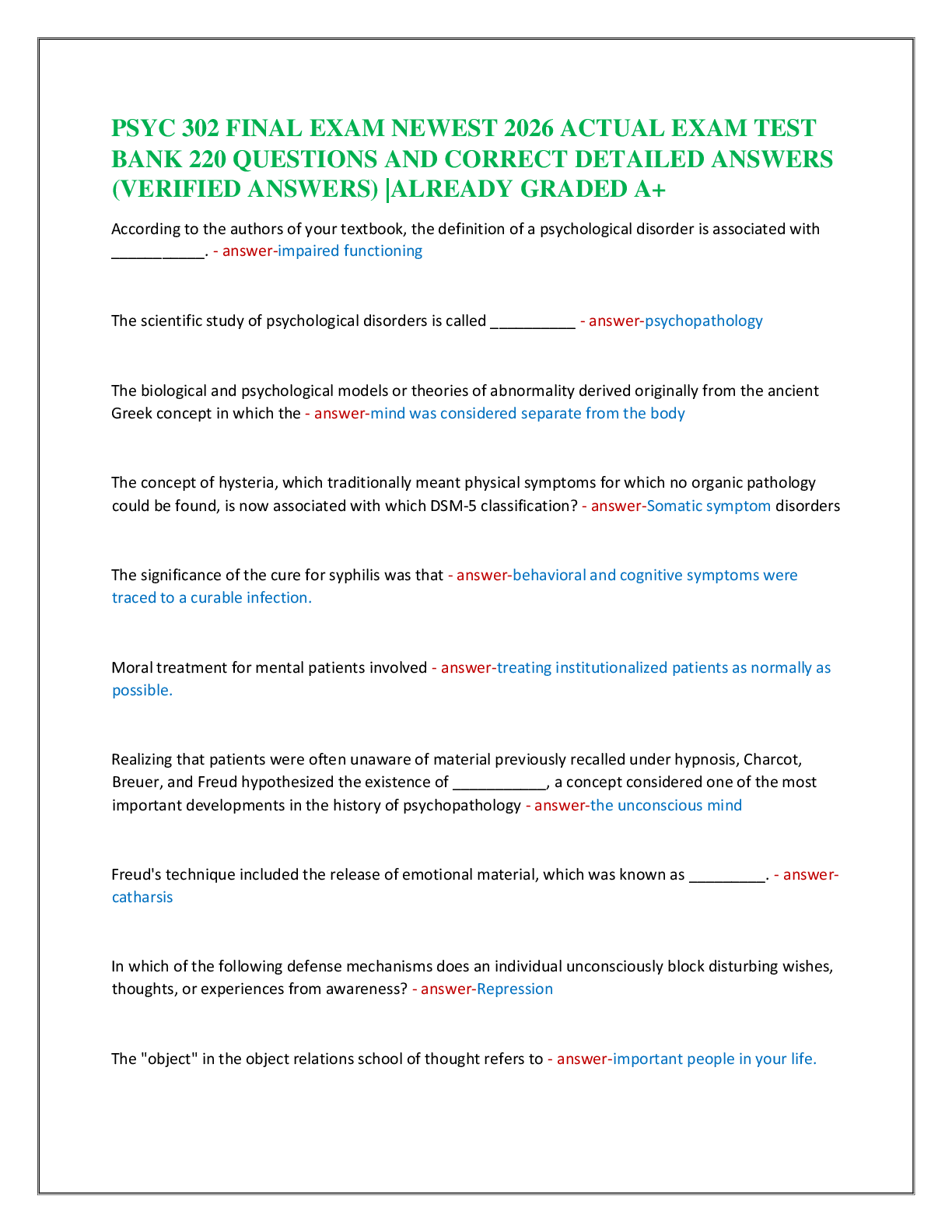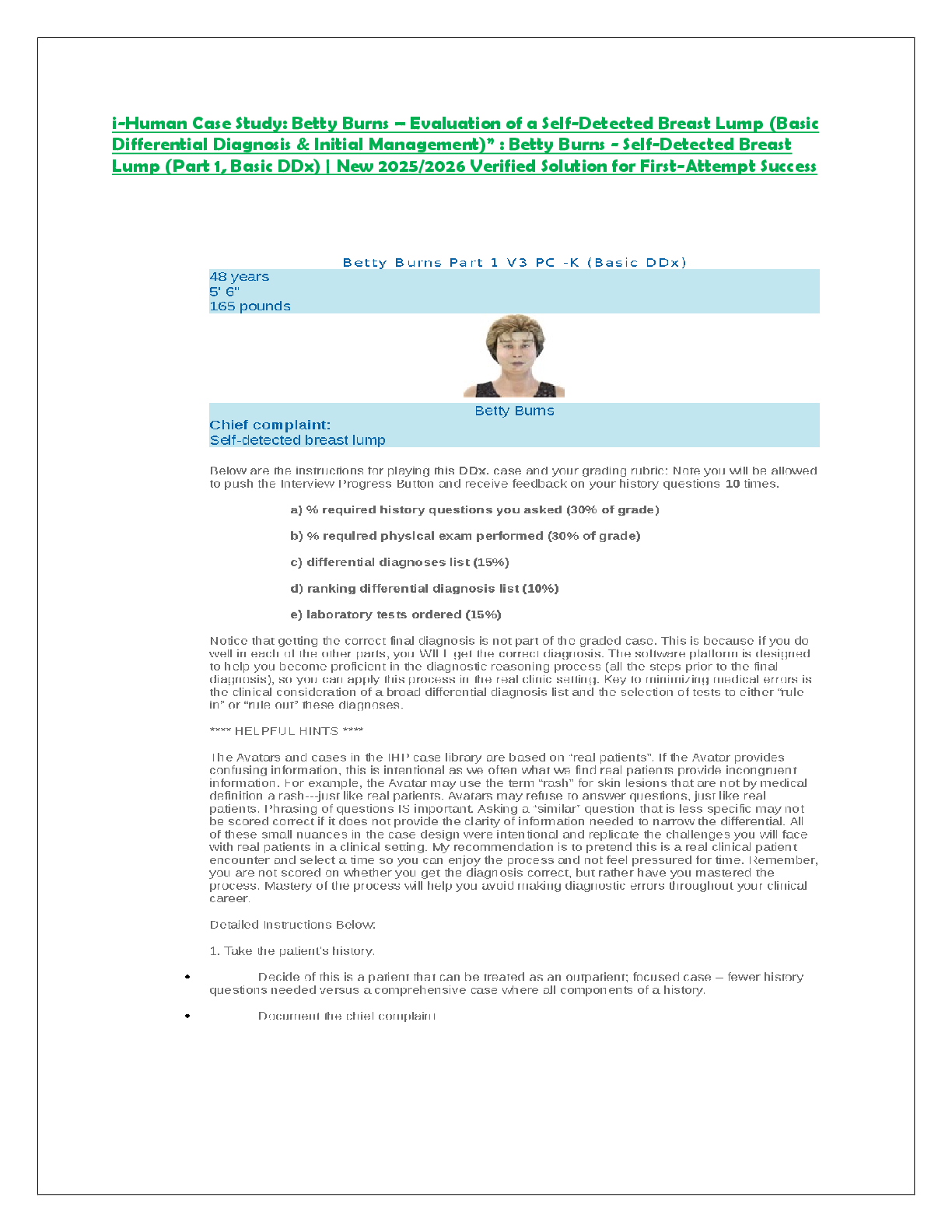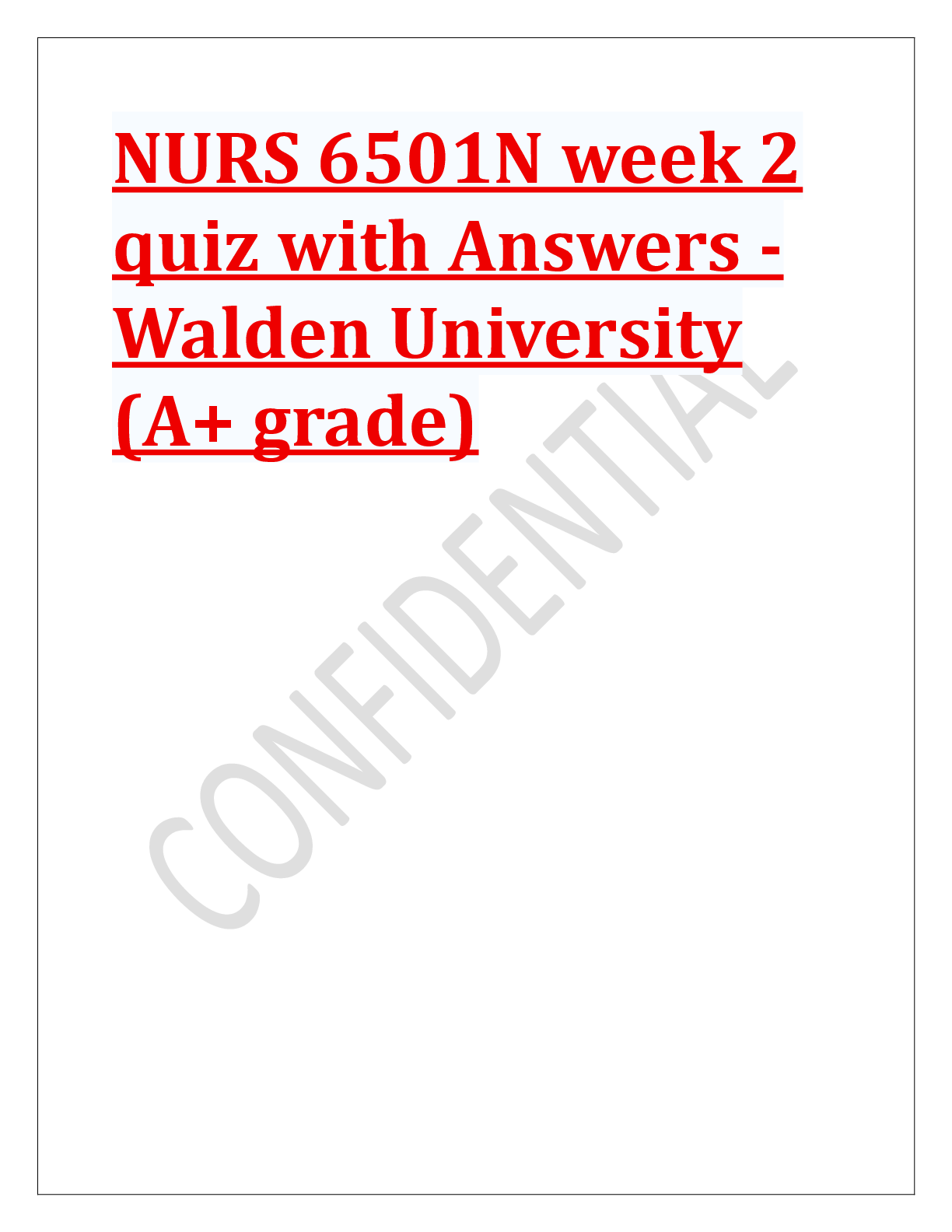week 1 test
• Question 1
0 out of 3 points
At the turn of the twentieth century, the American sociologist Fredrick Turner (1920) argued that while facing the challenges of the frontier, Americans as conquerors and
...
week 1 test
• Question 1
0 out of 3 points
At the turn of the twentieth century, the American sociologist Fredrick Turner (1920) argued that while facing the challenges of the frontier, Americans as conquerors and builders developed both __________________.
• Question 2
3 out of 3 points
A(n) _________ is a strategy for problem solving that reduces complex information and time-consuming tasks to more simple, rapid, and efficient judgmental operations, particularly in reaching decisions under conditions of uncertainty.
• Question 3
3 out of 3 points
Cultures based largely on modern beliefs, rules, symbols, and principles; relatively open to other cultures; absorbing and dynamic; science based, technology driven, and relatively tolerant to social innovations are referred to as ________.
• Question 4
3 out of 3 points
While traveling in a foreign country, you are approached by a group of strangers and have to quickly surmise their intentions. You will likely use a set of simple mental shortcuts to accomplish this task. These shortcuts are called _____________.
• Question 5
3 out of 3 points
Any systematic error in attribution that derives from people’s efforts to satisfy their own personal needs, such as the desire for approval by others, high self-esteem, power, or prestige, is called __________.
• Question 6
3 out of 3 points
The term for when we make systematic errors in thinking or information processing, typically due to highly vivid but rare events:
• Question 7
3 out of 3 points
De-Barnumize the following statement: “Canadians are sensitive to criticism.”
• Question 8
3 out of 3 points
The view that supports judgment about other ethnic, national, or cultural groups and events from the observer’s own ethnic, national, or cultural group’s outlook is called ________.
• Question 9
3 out of 3 points
The term _________ is used to describe cultures based largely on beliefs, rules, symbols, and principles established predominantly in the past; confined in local or regional boundaries; and restricting and mostly intolerant to social innovations.
• Question 10
3 out of 3 points
The propensity to resolve discrepancies between pre-existing schemas and new information in the direction of assimilation rather than accommodation (even when the information is distorted) is called ________.
[Show More]
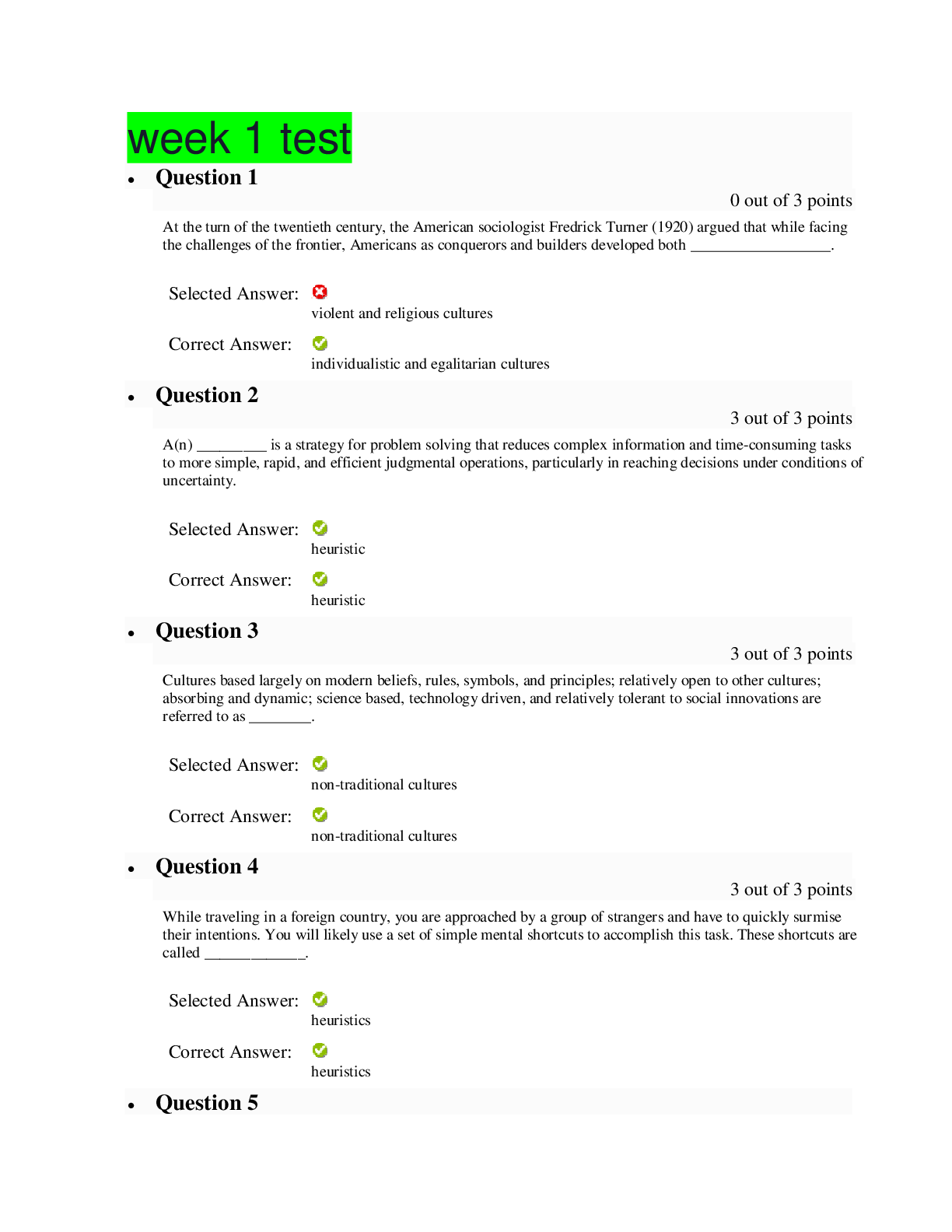


.png)






.png)




